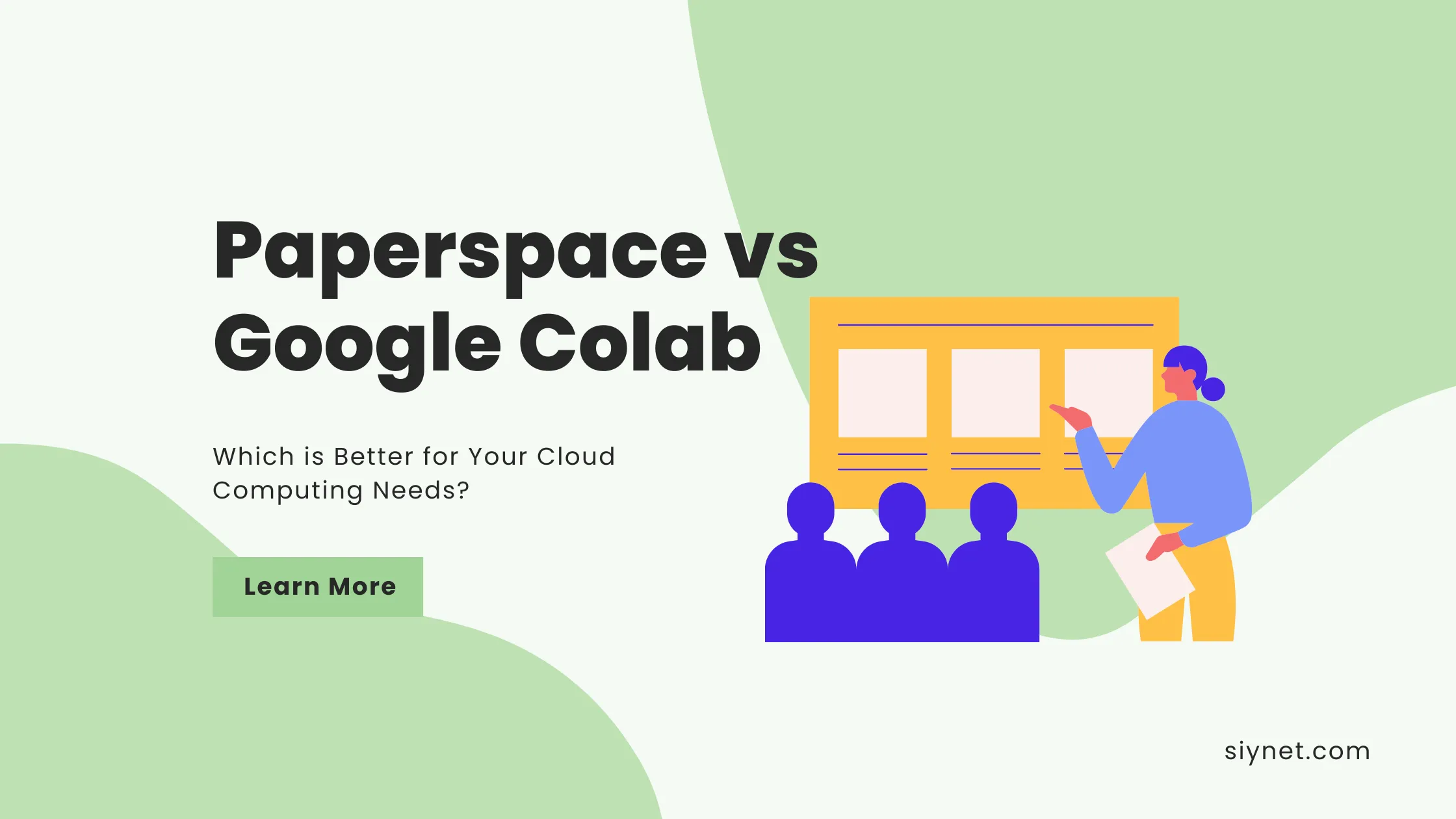
When comparing Paperspace vs Google Colab, the platforms serve different needs. Here’s an in-depth guide on cost, GPUs, collaboration, support, and more.
Quick Comparison Table
| Feature | Paperspace (Gradient) | Google Colab |
|---|---|---|
| Free Tier | Yes – M4000 GPU, 6 hr sessions | Yes – T4/K80 GPU, 12 hr sessions |
| Paid GPUs | T4/A4000/V100/A100 from ~$0.45/hr | Pro/Pro+ with P100, V100, A100 ($9.99–$49.99/mo) |
| Session Limits | 6 hrs (free), 12 hrs (paid) | 12 hrs free; longer with Pro/Pro+, but still pre-emptible |
| Customization | Full VM control, custom containers | Standard Jupyter environment, limited tuning |
| Collaboration | Team projects via Gradient | Real-time editing, Drive integration |
| Support | Official support & detailed docs | Community forums; no direct support |
1. Cost Comparison
Paperspace doesn’t offer free GPU access except on limited plans but lets you choose from GPU classes like T4, A4000, V100, and A100. Pricing starts around $0.45/hour for T4 instances :contentReference[oaicite:4]{index=4}.
Google Colab provides a free tier with T4/K80 GPUs and paid Pro tiers ($9.99–$49.99/month) that offer upgraded GPUs but are still affected by session limits and compute unit quotas :contentReference[oaicite:5]{index=5}.
2. Performance & GPU Options
Colab’s free tier offers decent GPUs, yet performance fluctuates based on demand and resource contention :contentReference[oaicite:6]{index=6}.
Paperspace delivers dedicated performance with high-end GPUs like A100 and consistent compute power, without the variability common in shared environments :contentReference[oaicite:7]{index=7}.
3. Session Limits & Runtime Stability
Colab limits sessions to ~12 hours and pre-emptible VMs can drop mid-training :contentReference[oaicite:8]{index=8}.
Paperspace’s free plan allows 6-hour sessions; paid plans offer a stable 12-hour runtime—and won’t terminate mid-task :contentReference[oaicite:9]{index=9}.
4. Flexibility & Customization
Colab provides a familiar Jupyter interface with tight Google Drive integration but lacks VM-level control.
Paperspace Gradient gives you root access, full customization, container support, and framework flexibility—ideal for production-level projects :contentReference[oaicite:10]{index=10}.
5. Collaboration & Ecosystem
Colab shines with real-time notebook collaboration and seamless Drive sharing.
Paperspace supports team collaboration via Gradient workspaces and code sharing, but lacks live notebook editing :contentReference[oaicite:11]{index=11}.
6. Support & Documentation
Colab relies on community forums and tutorials but offers no formal support.
Paperspace provides professional support alongside comprehensive documentation—an advantage for serious users :contentReference[oaicite:12]{index=12}.
User Insights & Real Feedback
“Colab free version disconnects mid-job; compute units cost adds up fast.” :contentReference[oaicite:13]{index=13}
“Gradient guarantees your session and gives persistent storage—great for longer tasks.” :contentReference[oaicite:14]{index=14}
FAQs
Is Paperspace free?
Yes—Paperspace offers a free M4000 GPU with 6-hour sessions, but availability varies :contentReference[oaicite:15]{index=15}.
Can Colab run long training tasks?
Colab’s runtime is limited to ~12 hours and VMs may be pre-empted—unsuitable for very long or high-priority jobs.
Which is best for production?
Paperspace is better suited for professional pipelines thanks to full control, consistent runtimes, and reliable support.
Conclusion
When comparing **Paperspace vs Google Colab**, Colab is unbeatable for free, quick experimentation, and collaboration. However, for production-level work, powerful GPUs, and custom environments, Paperspace offers greater control and stability.
✅ What Should You Do Next?
Start with Colab to prototype your models, then switch to Paperspace for scalable training and deployment. Check out our ML Workflow Setup Guide for streamlined project scaling.
Read a detailed comparison of free cloud GPUs


Leave a Reply